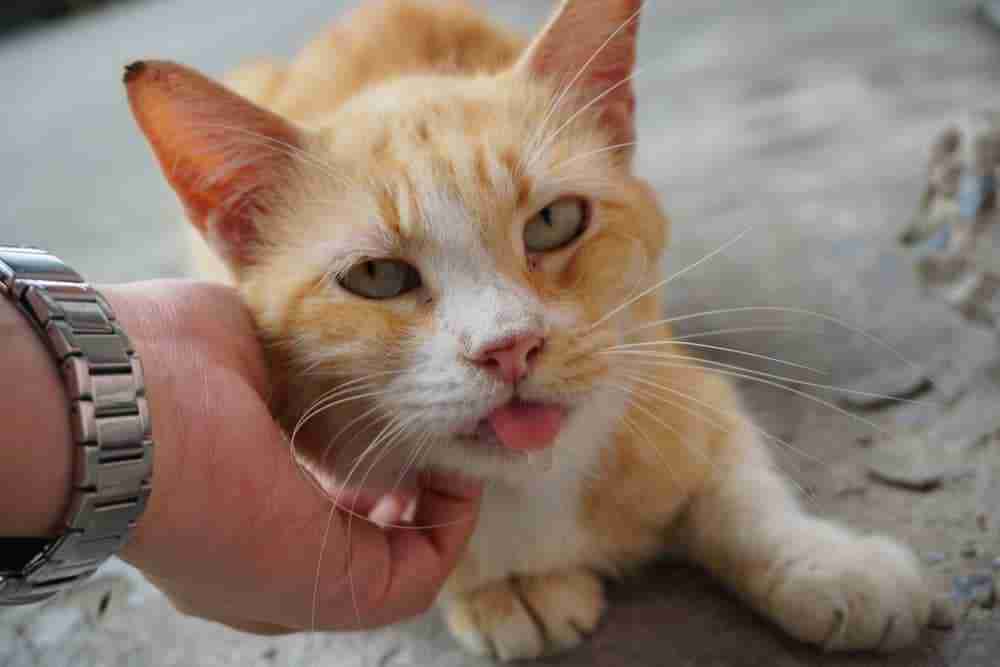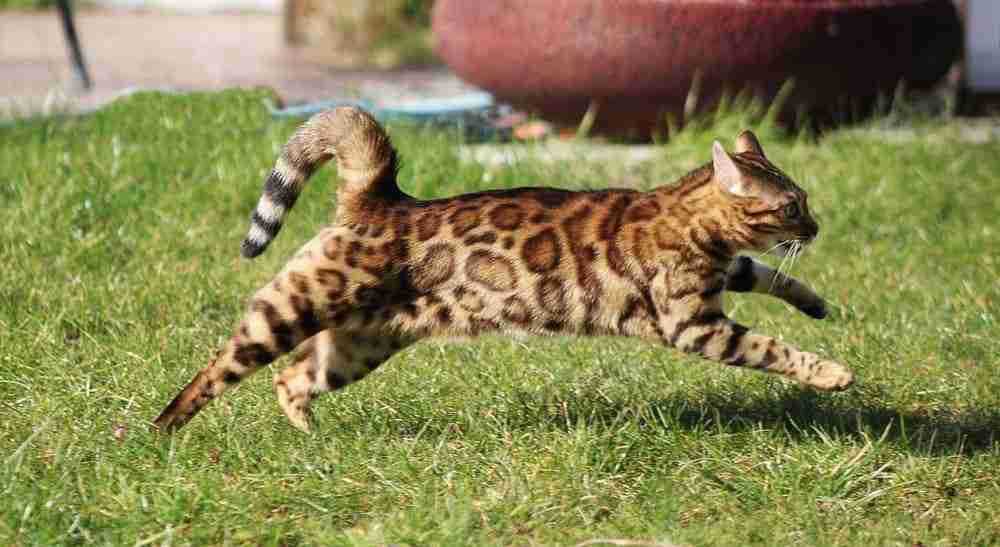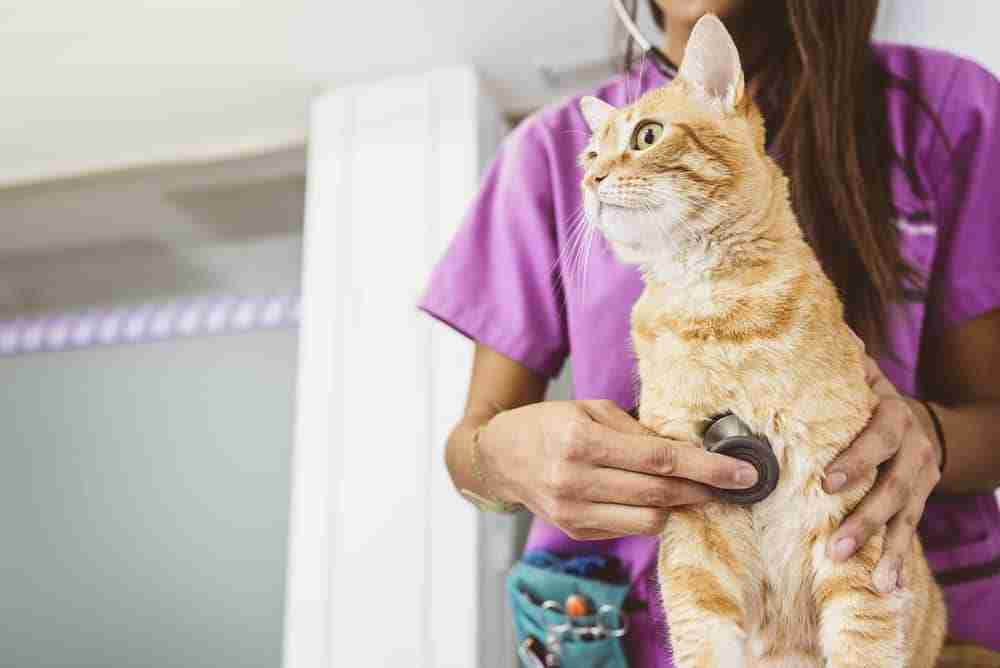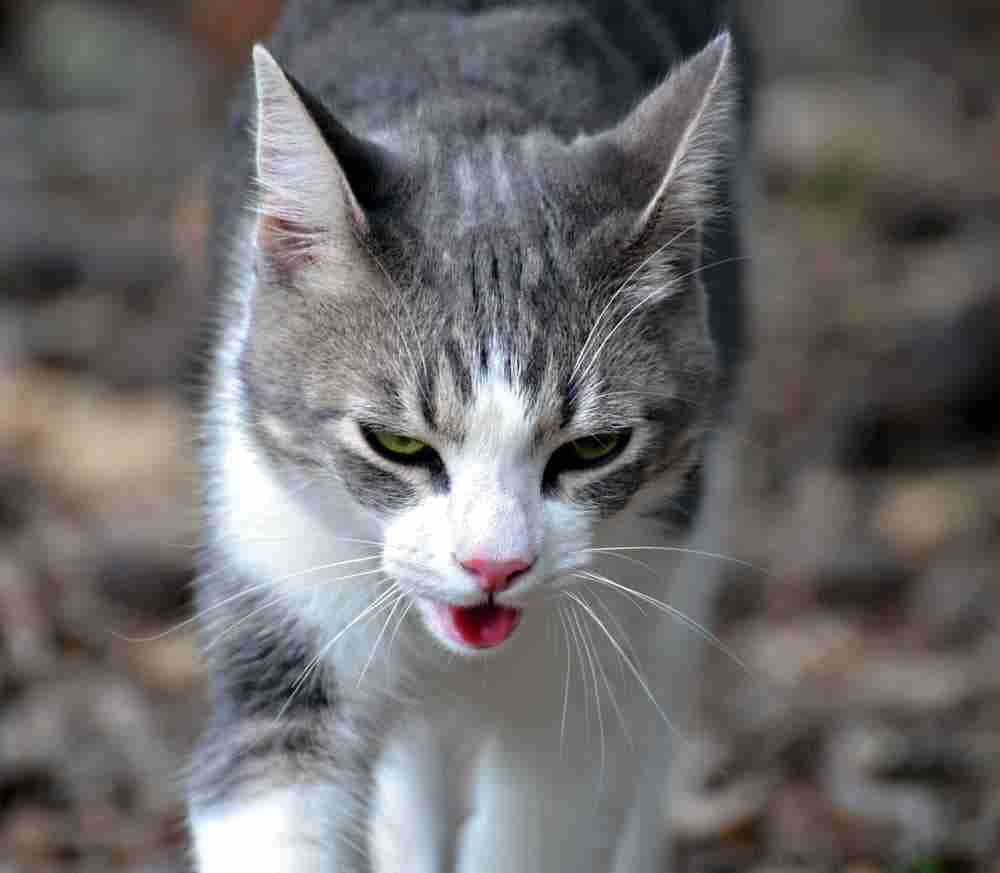Why do cats pant? Usually, because they have either undergone vigorous exercise, are overhot, stressed, in pain, poisoned or they have an underlying medical issue.
By and large, cats rarely pant, and when they do, it’s usually not a good sign. If your cat is panting because of exercise, they have to have undergone some serious physical exertion, and the heavy breathing won’t last longer than a few moments.
When cats start panting, it looks similar to how dogs do it. They leave their tongue out over their bottom teeth and breath in and out through their mouth. Breathing sounds will be louder than usual, but they hardly ever drool.
Some breeds of cats are more susceptible to panting than others. The cat might have a heavy coat, or they suffer from a respiratory issue.
Maine Coons, Persians, and Himalayans have flatter faces than other cat breeds and narrow nostrils. Therefore, these breeds are prone to panting more than others.
Why Does My Cat Pant?

Cats have efficient bodies and respiratory systems. Therefore, if you notice your kitty mouth breathing or gasping, it might be a sign of something else other than physical exhaustion.
Panting For Normal Reasons
Typically, a cat will never breathe through its mouth unless it has to, and it’s a sign that’s something going on behind the scenes with your kitty’s health.
Before you panic and pack the kitty in the carrier for a trip to the vet’s rooms, assess the situation yourself.
Some of the normal scenarios where your kitty might start panting include the following.
- Recent vigorous play or exercise.
- A hyper episode.
- A stressor in your home, like a new cat or pet.
- Travel anxiety.
- Overheating.
With these “normal” scenarios, your cat may gasp for a few minutes at most before it returns to breathing through the nostrils.
If you notice your cat’s mouth breathing after enduring one of these scenarios, give them space. Let them sit in the shade or indoors, and give them some fresh water to drink.
If your kitty continues to pant, and the intensity increases or continues at a steady pace for longer than 10-minutes, you might have a problem.
If your cat hasn’t undergone any of the normal stressors that induce heavy breathing or an increased respiration rate, there might be an underlying health issue causing the behavior.
Some of the “abnormal” medical conditions causing panting behavior include the following.

Asthma
Yes, cats get asthma. One of the most common causes of asthma in cats is smoke inhalation. Cats have sensitive lungs, and they develop respiratory issues quickly. Cats may also develop allergies to litter or other environmental contaminants, causing asthma leading to irregular heavy open-mouth breathing.
Heartworm
This parasite is more common in dogs, but cats can come down with it as well. Heartworm eats away at the cardiovascular system of your kitty, damaging the endothelial lining. As a result, your cat starts panting as a need to fulfill its oxygen requirements.
You may also notice your cat gets lethargic and unresponsive. Heartworm is lethal if vets font catch it early; treatment for the condition include corticosteroids for reducing inflammation and oxygen therapy in more severe cases,”

Congestive heart failure
If your cat is dealing with a heart problem, it might start to experience fluid building in the lungs. They could incur the problem through injury, disease, or genetics.
As the fluid accumulates in the lungs, it causes your cat to breathe rapidly, and they might start to pant. Your vet will need to drain the fluid from your cat’s lungs and identify the problem’s source before recommending treatment.
Respiratory infection
Cats are prone to developing asthma and respiratory infections. A respiratory infection inflames the airways, making it difficult for your cat to breathe. As a result, your cat might start panting because they feel shortness of breath.
Cats can experience viral and bacterial respiratory infections. If you think your cat might be sick, make an appointment with your vet for a diagnosis.
Running a humidifier in your cat room can give your cat some relief from the infection and dryness in the throat caused by panting.
Some chronic health conditions, such as anemia, might also cause panting behavior in cats. Cats with anemia don’t produce enough hemoglobin in red blood cells. As a result, they have a hard time sending oxygen to the brain and muscular system.
If your cat has anemia, your vet will need to put them on medication to boost hemoglobin production. Some of the other chronic ailments causing your cat to pant include the following.
- Trauma or stress
- Neurological diseases
- Distended abdomen
- Severe physical pain
Abnormal panting can occur at any time in your cat. It doesn’t need a physical trigger to start the behavior. The cat may spontaneously start panting at any time.
Poisoning
Your cat may start to pant or exhibit unusual breathing patterns if they have ingested a toxin or poison.
Often, if they have ingested a poison such as a toxic plant or fern, or a chemical in the environment they will also suffer from other symptoms such as vomiting, drooling, diarrhea, and pain in the stomach area.
When Do I Need to Take My Cat to the Vet for Panting?
As mentioned, panting could be a sign of an underlying health issue in your feline friend. If you notice panting occurring without any physical stressors, take your cat to the vet for a checkup right away.
Some of the more severe signs of panting complications include wheezing, labored heart rate, and labored breathing.
Even if you think the panting behavior might be exercise-related, it’s a good idea to call your vet for advice on the situation. When it comes to your furry friend’s health, it’s not worth taking a chance.
